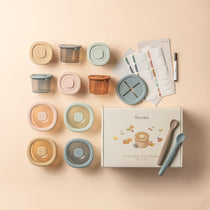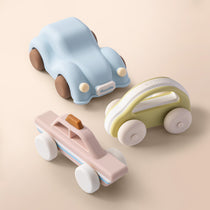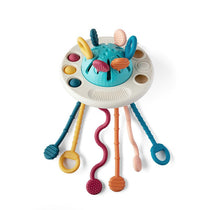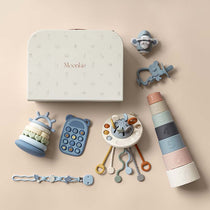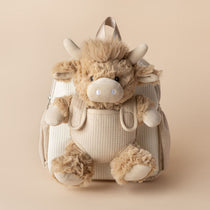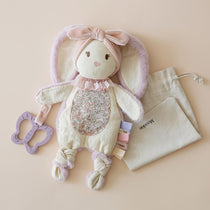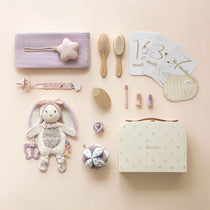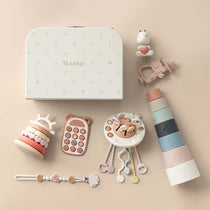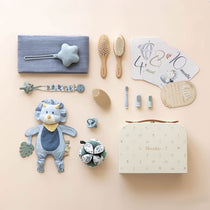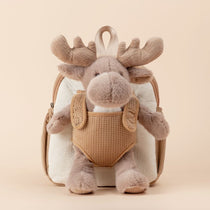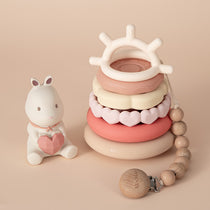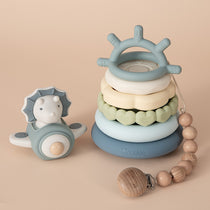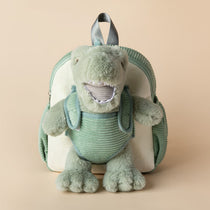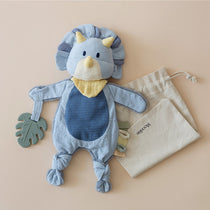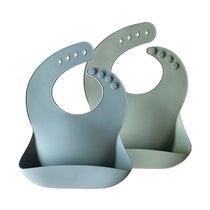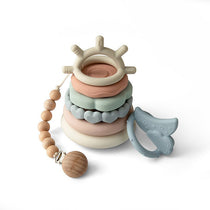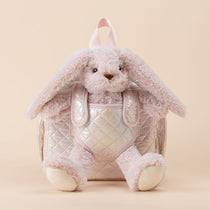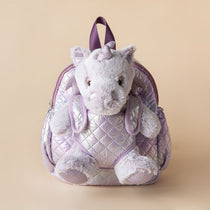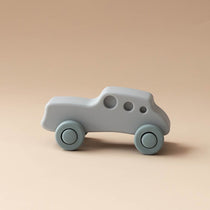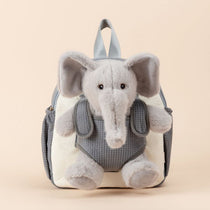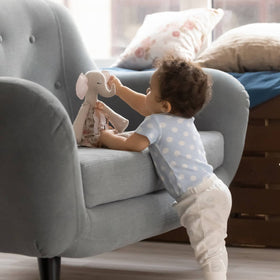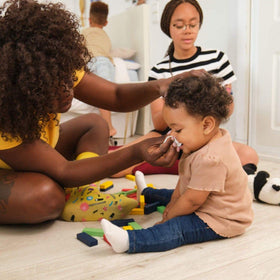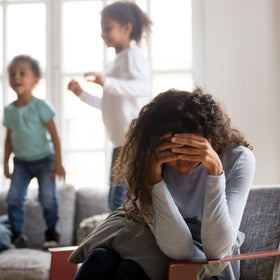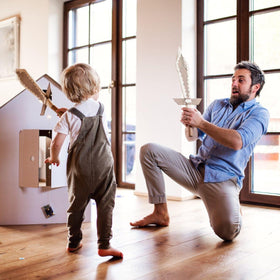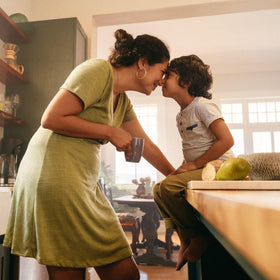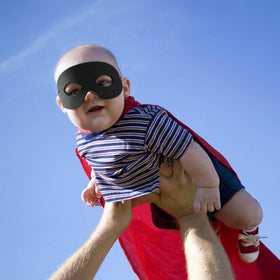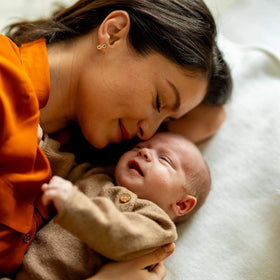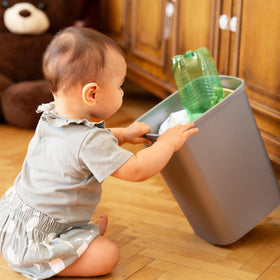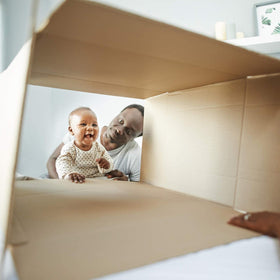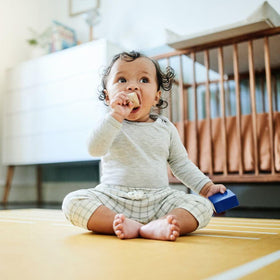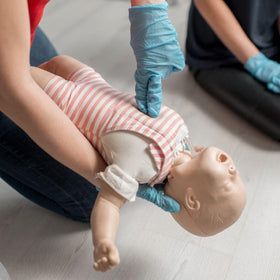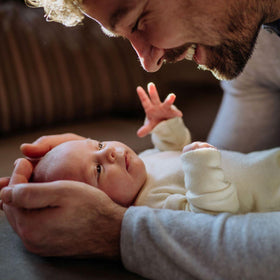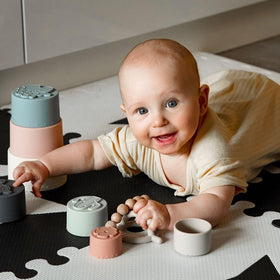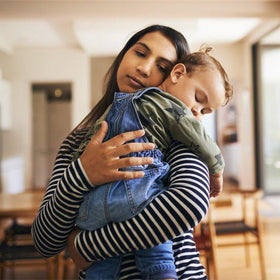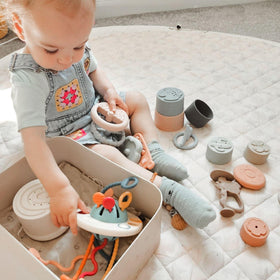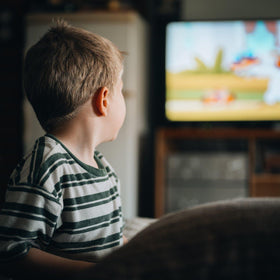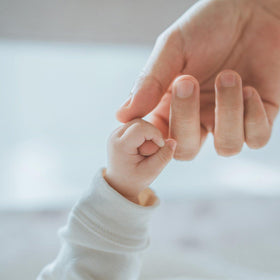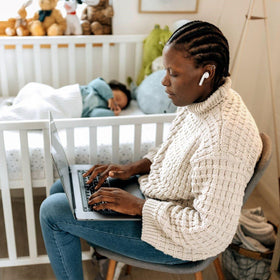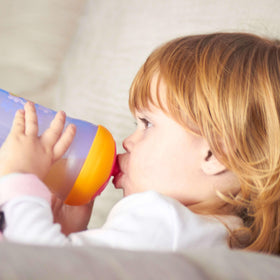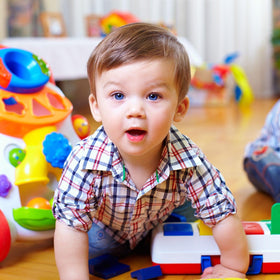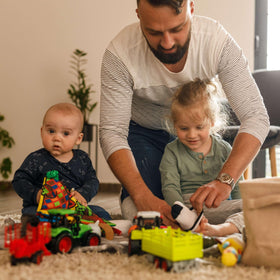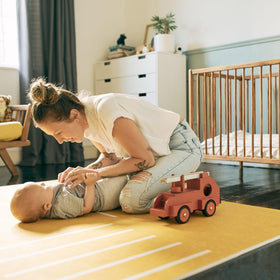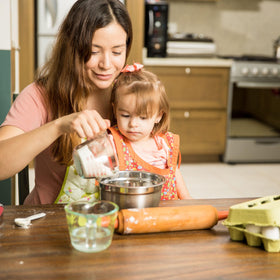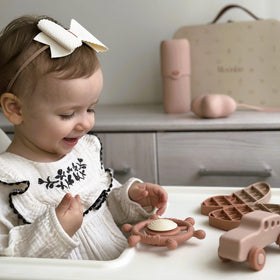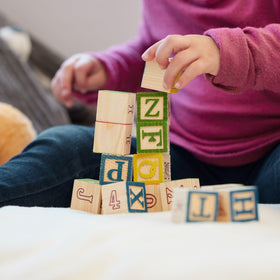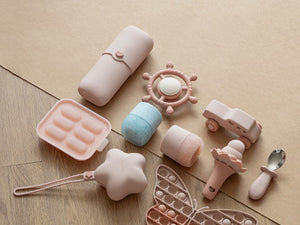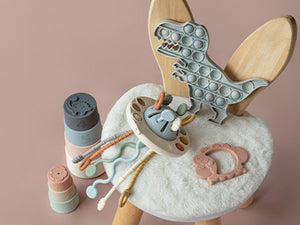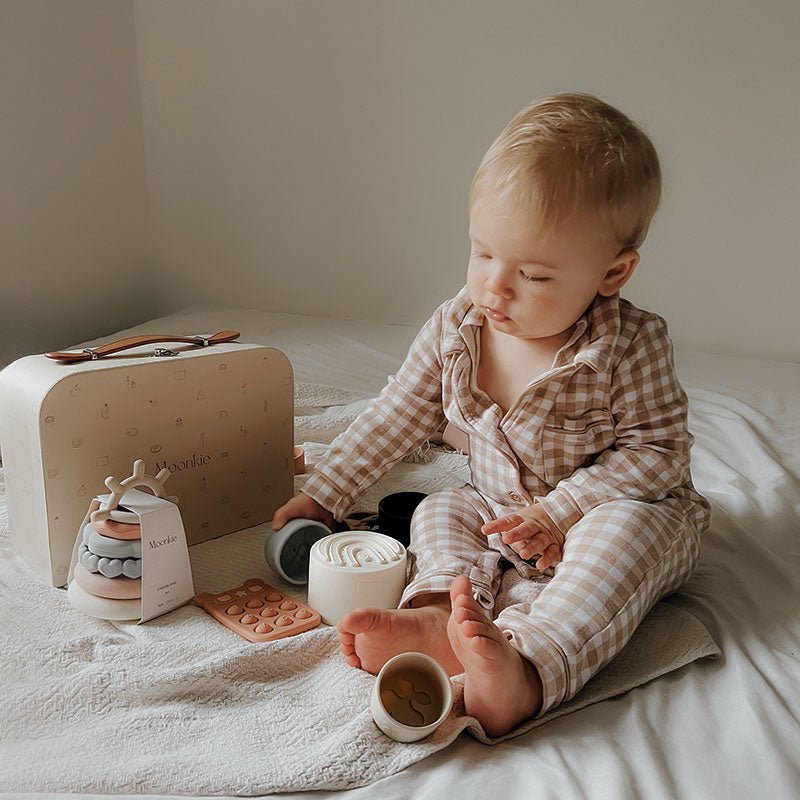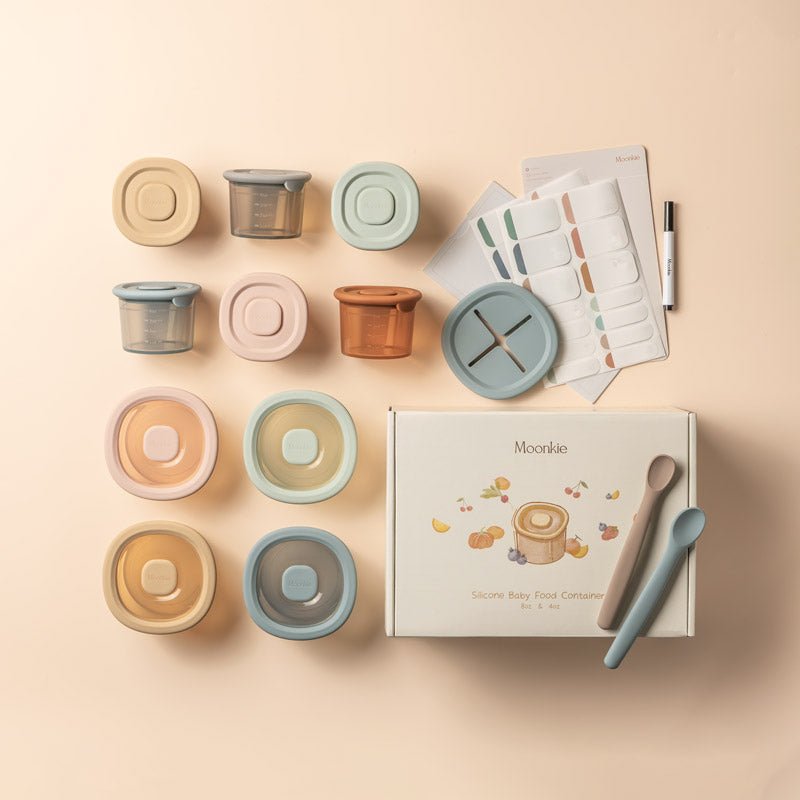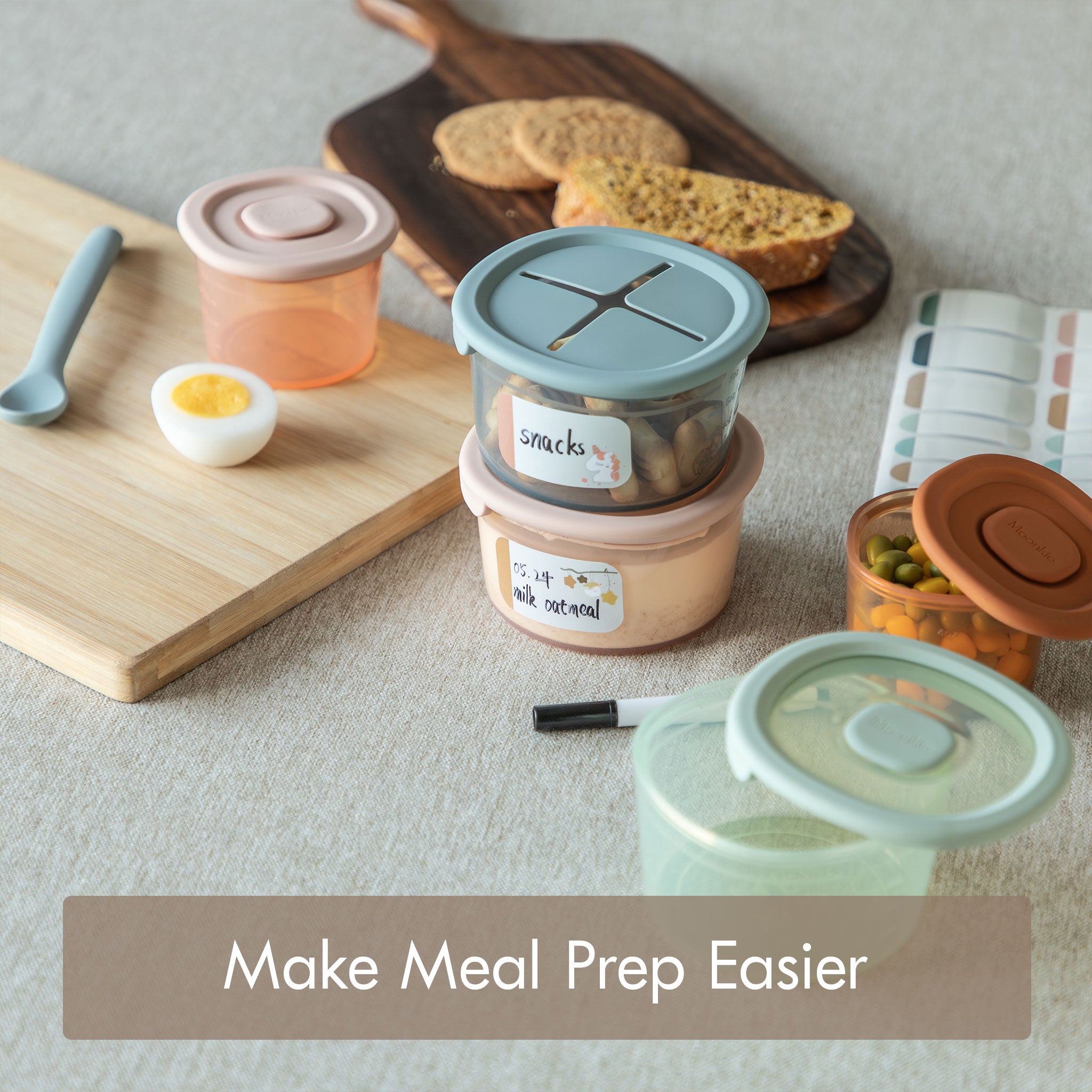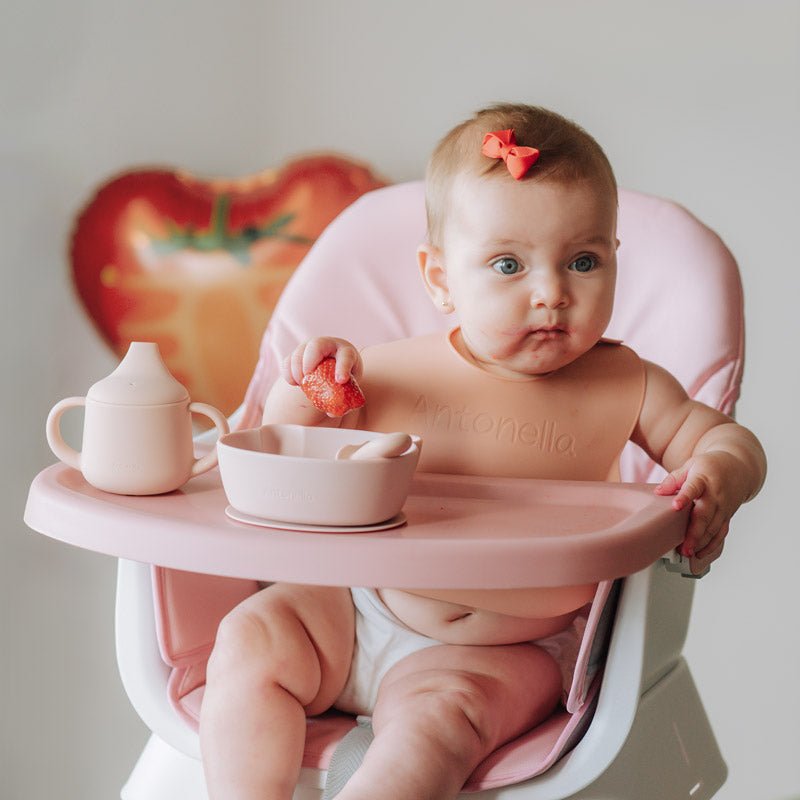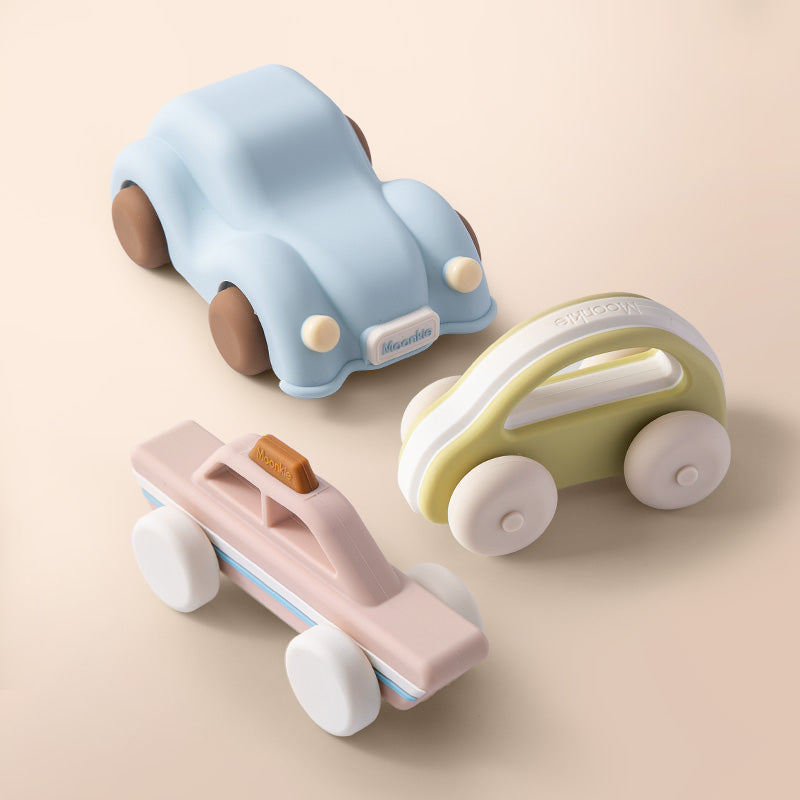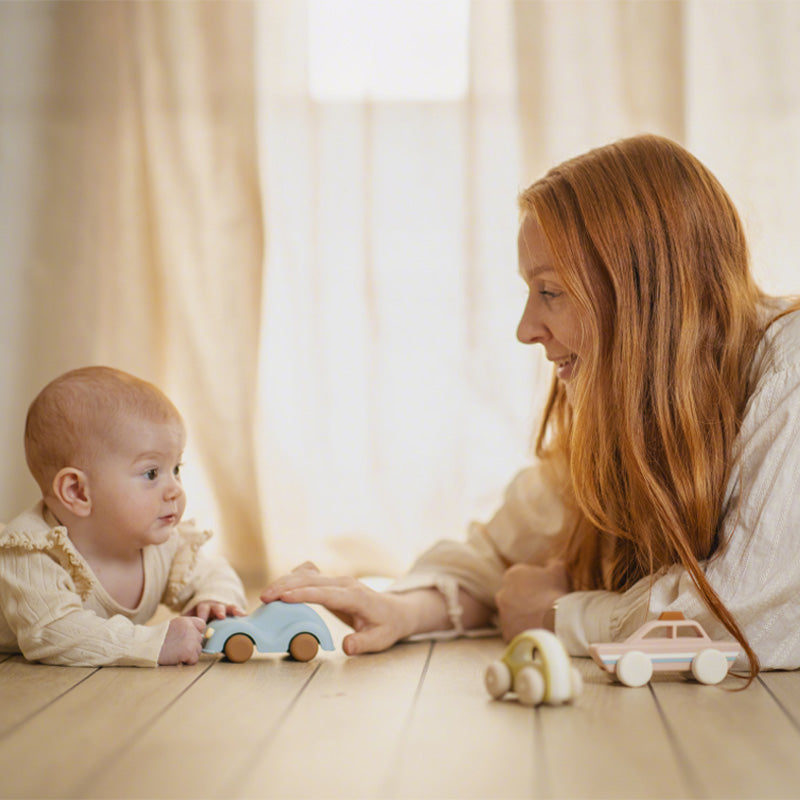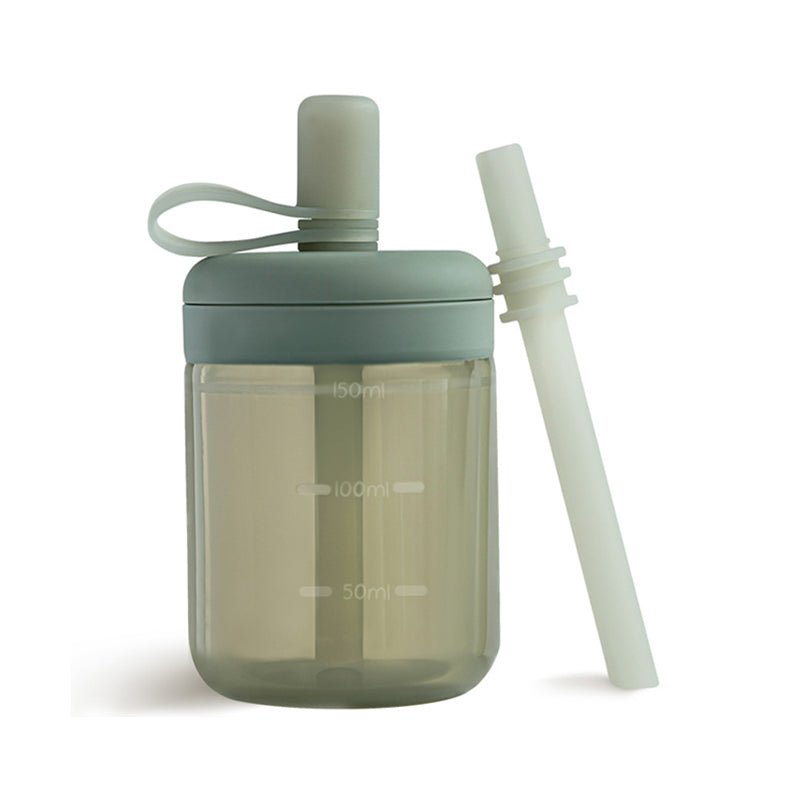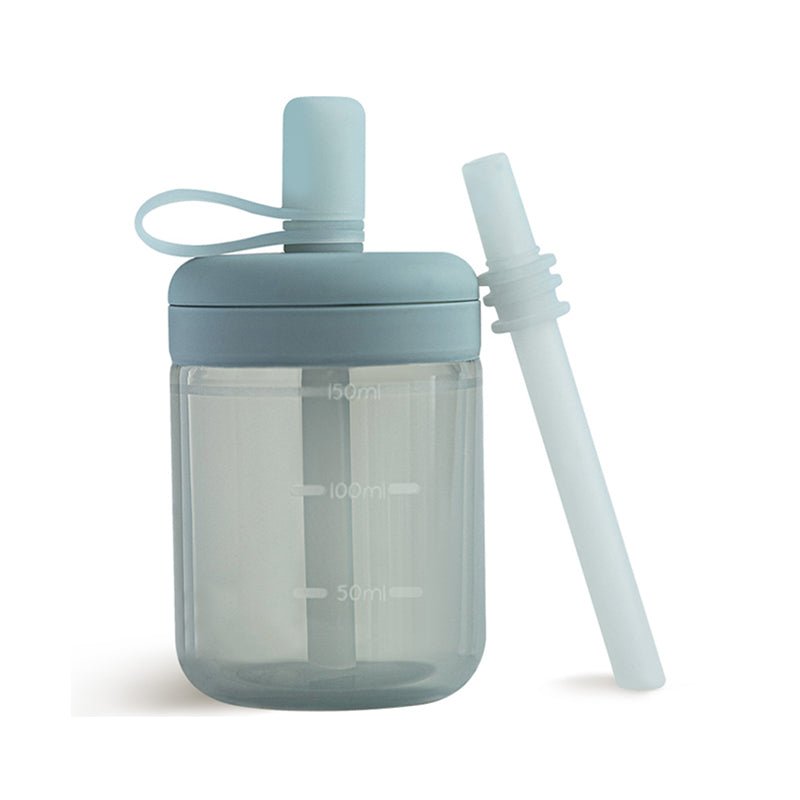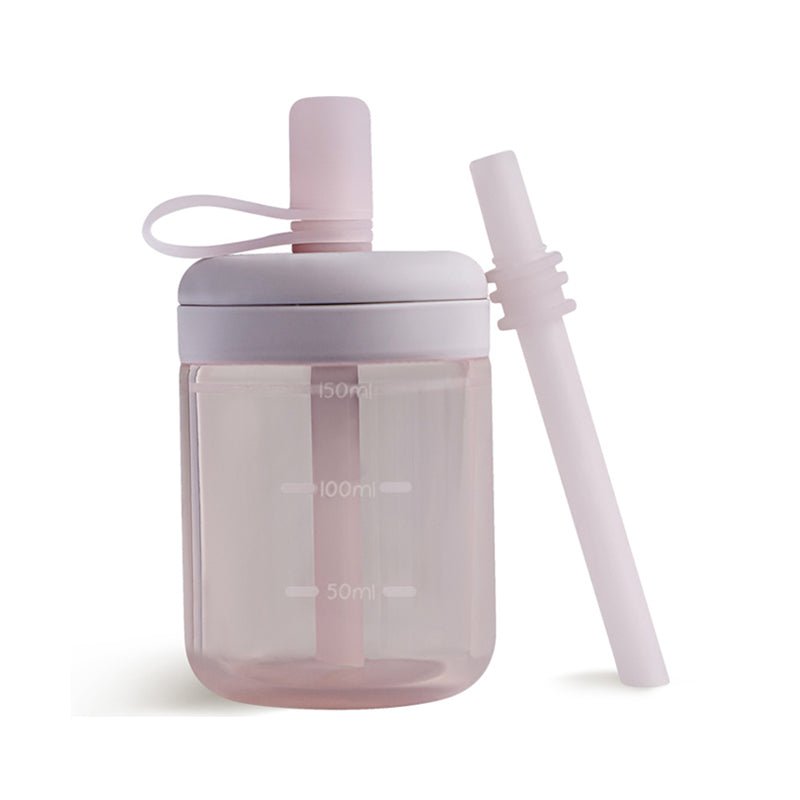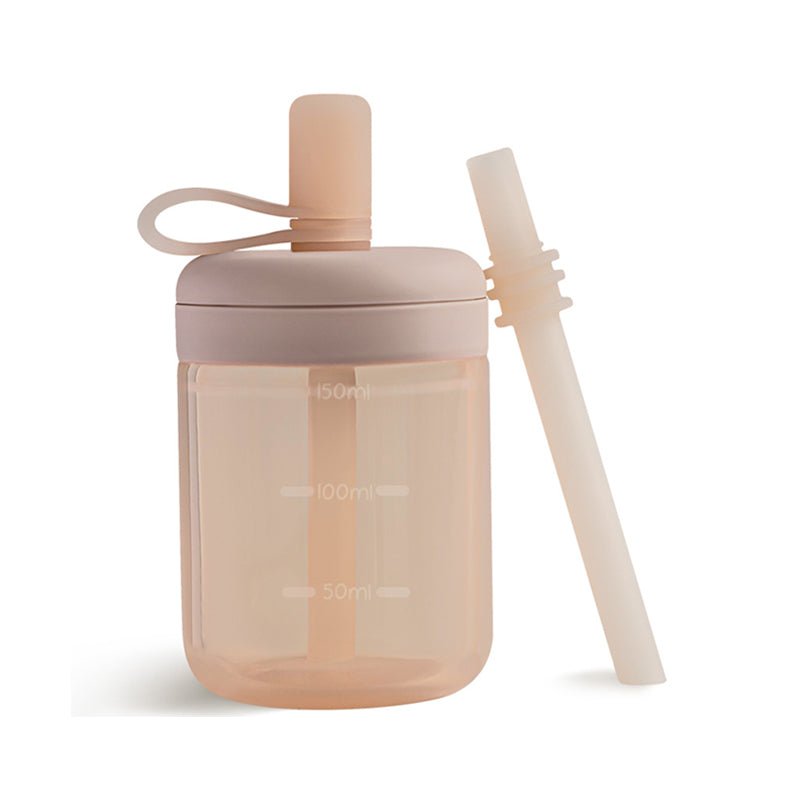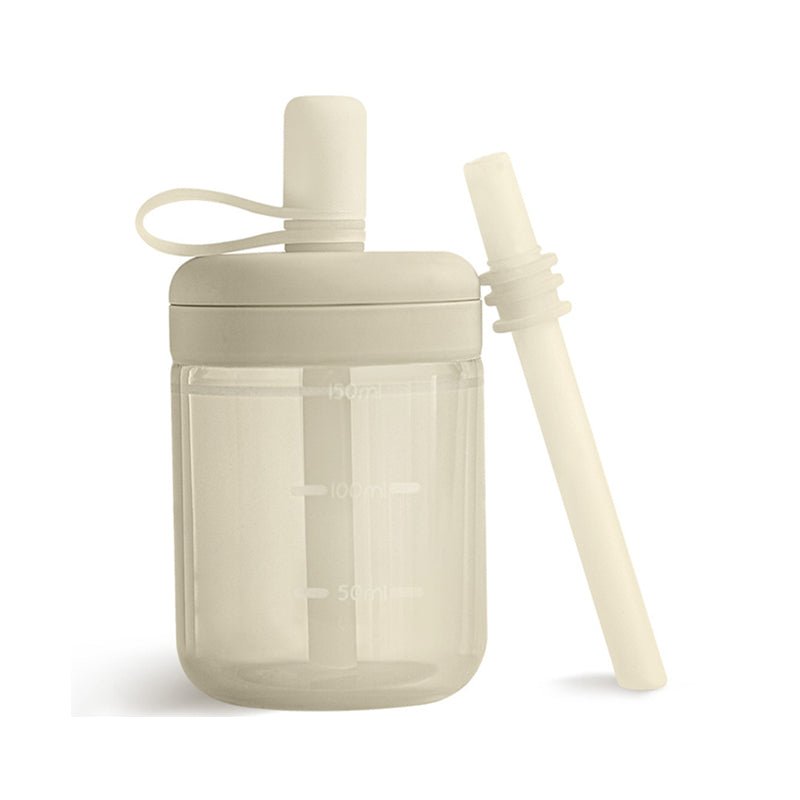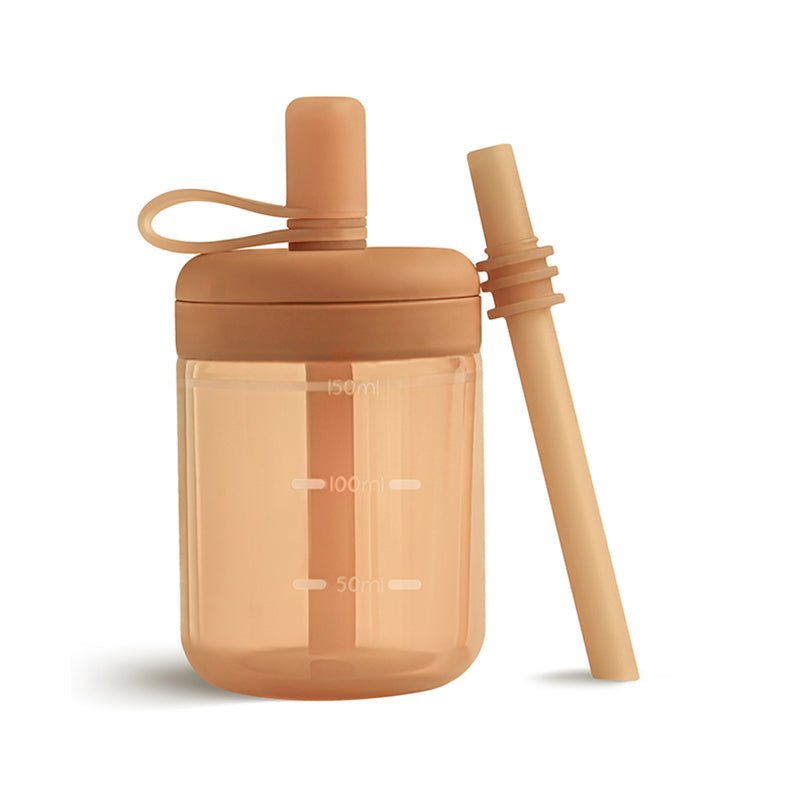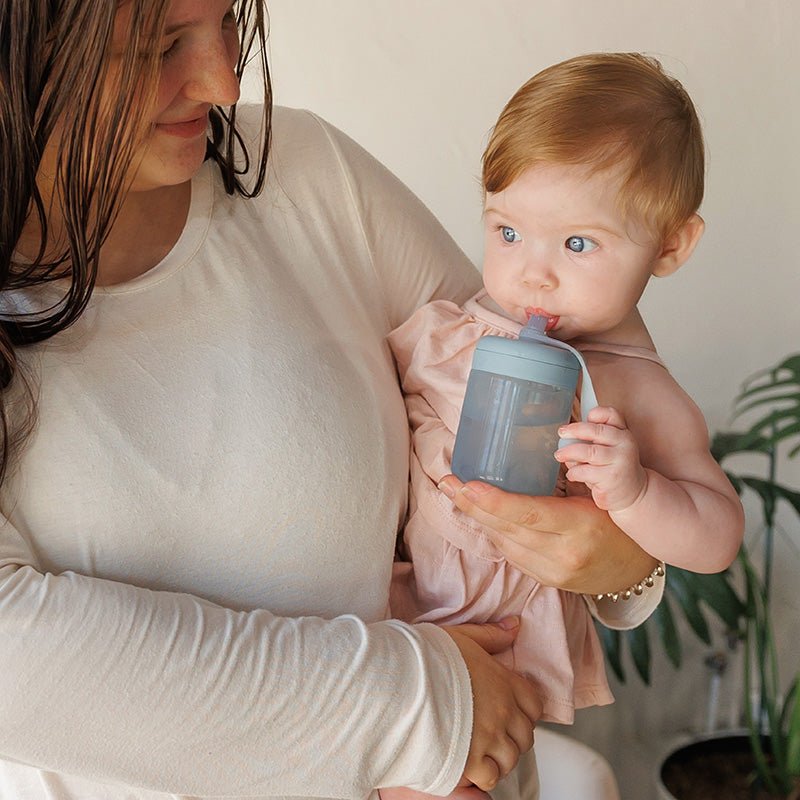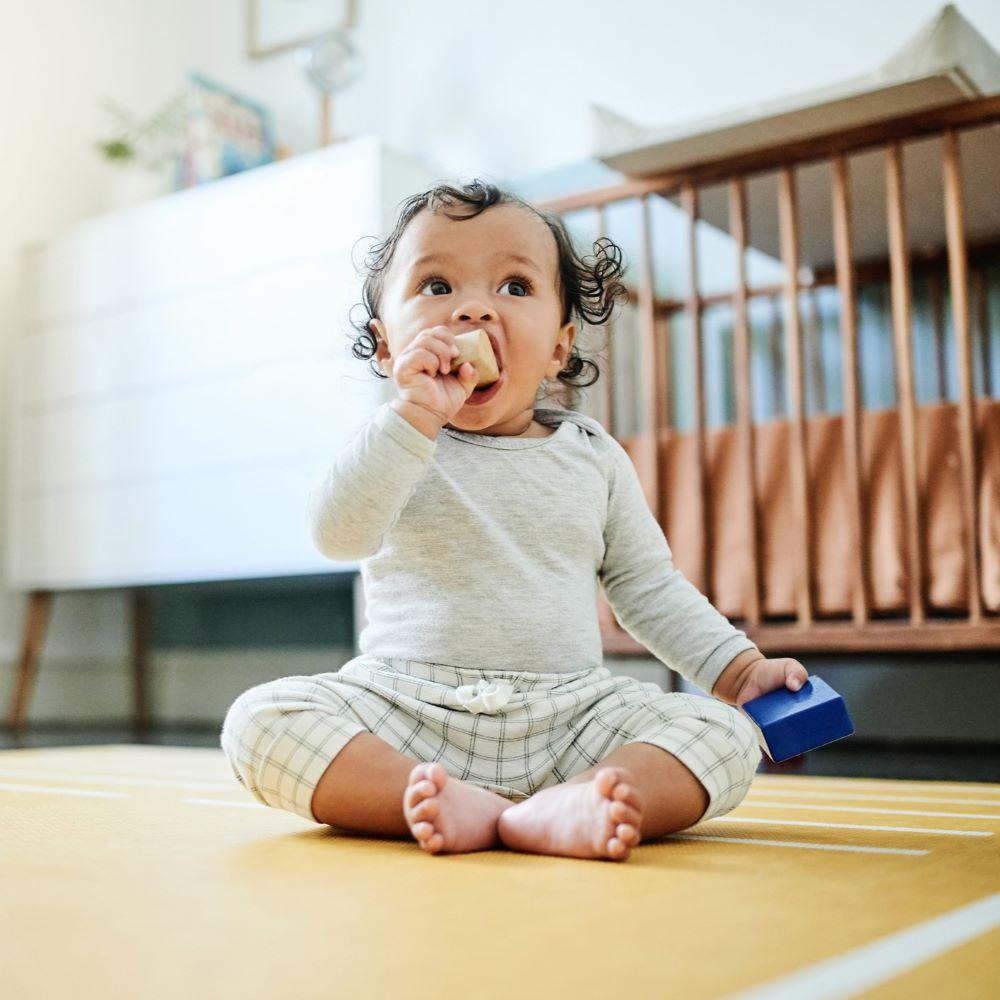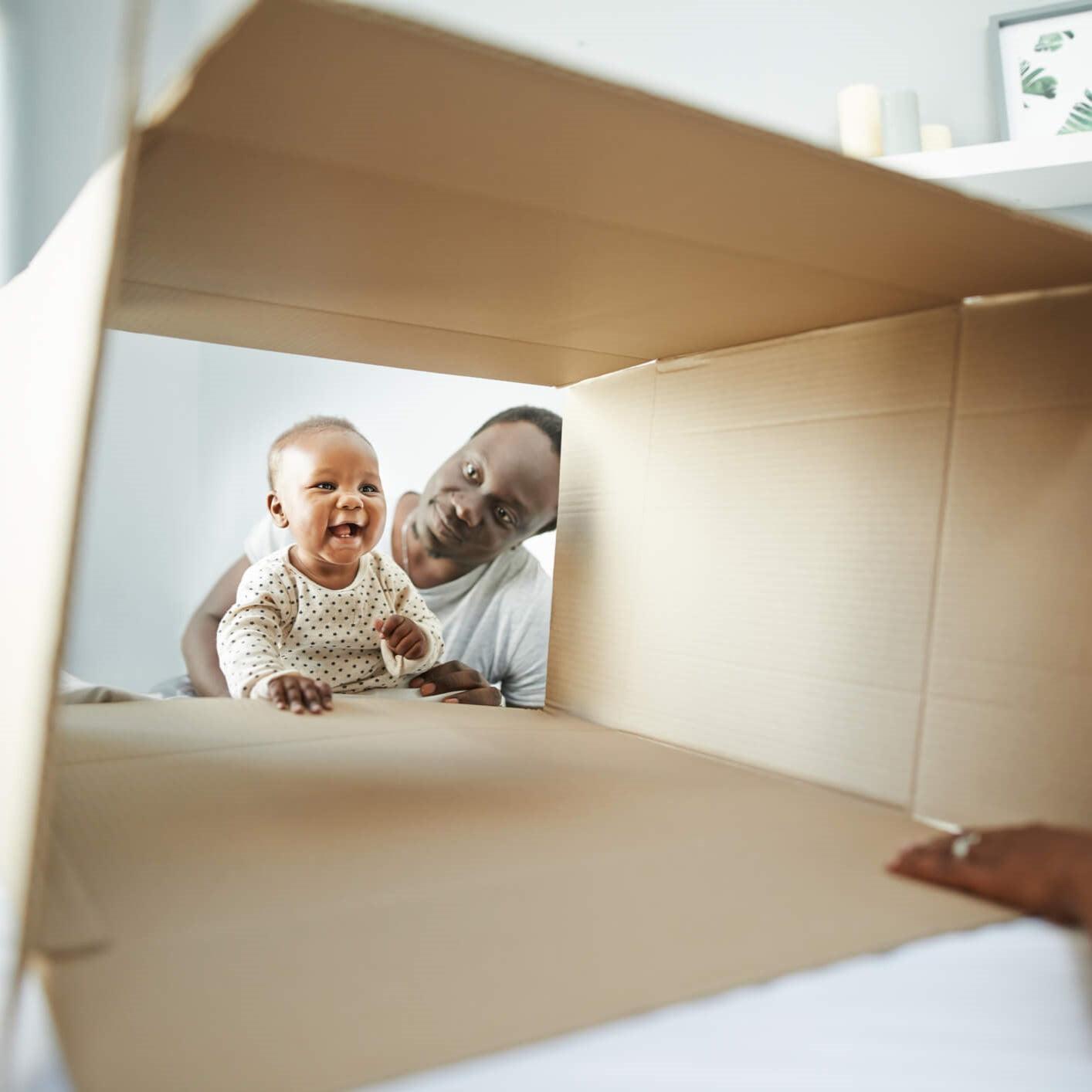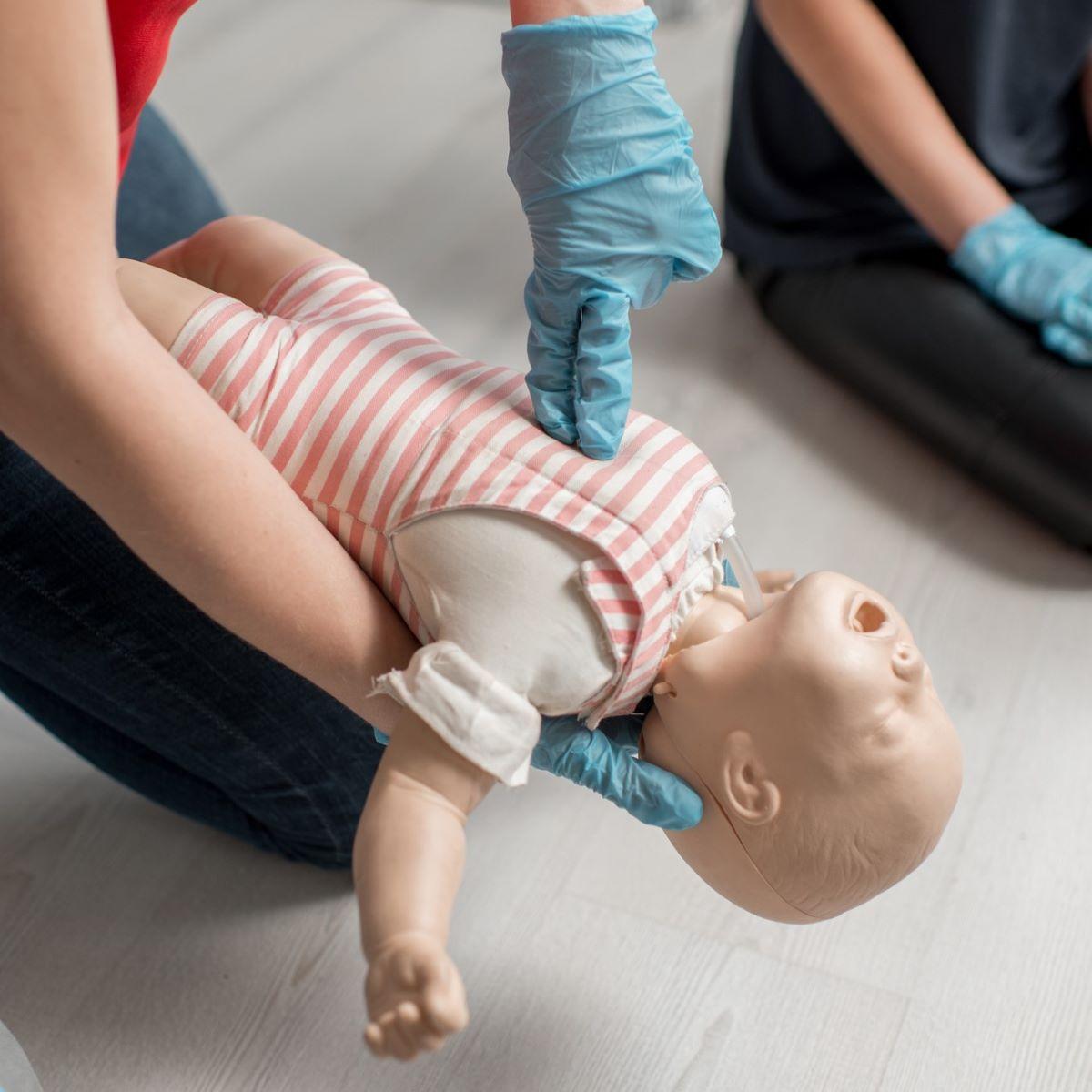Kids are not as resilient as people make them out to be. Some things are pushed on them too early, and some things are not pushed soon enough. How can a parent know when their child is ready for something?
Parents can know their child is ready to learn or experience something by keeping their child's developmental age and abilities in mind and noticing signs of readiness. For example, your child may be ready to spend the night at Grandma's house once he can sleep through the night without a feeding.
Every child is different, but learning what to look for and ways to ease into new skills or eras of development is helpful as a first-time parent!
1. When Can My Baby Start Solid Foods?
Your baby can begin exploring solid foods around 6 months old (source). Ideally, you won't start your baby on solids before 4 months old because his gut will likely not be ready for it yet.
Moreover, your baby needs to be able to sit up on his own and purposefully grab food and bring it to his mouth. That tongue-thrust reflex to push things out of his mouth also must pass before he can eat food safely (source).
Before you embark on the unforgettably adorable journey of introducing food to your little one, read Introducing Baby to Solid Food: When to Start, What to Try, and How to Begin for recipe ideas and safe food prep and storage tips.
2. How Young Is Too Young for Sleep Training?
Sleep training is the ingenious process of teaching your baby to fall asleep without parental help (source). No cuddling, swaying, rocking, nursing, or singing. Sleep training doesn't mean your baby won't wake up for night feedings; it just means your baby can go back to sleep independently.

The Sleep Foundation recommends putting off sleep training until your little one is 4 to 6 months old (source). This allows time for your baby to develop her circadian rhythm enough to prefer sleeping longer stretches at night, and she may not need feedings every 2 to 3 hours anymore (though every baby is different!).
Some babies may do better with sleep training around 9 months old simply because they probably won't wake up for nighttime feedings. Regardless, you should definitely not try to sleep train your newborn, as she hasn't adjusted her circadian rhythm or feeding needs for nighttime yet.
3. When Should I Start Introducing Screen Time to My Child?
Ideally, you will not introduce screen time to your child until about two years old--and even then, the American Academy of Pediatrics recommends limiting that time to less than an hour a day of quality programming with a parent (source, source).
Between 0 and 3 years old, your child creates a million new neural connections every second (source). At such a staggering development rate, your little one should create quality connections by exploring the physical world and interacting with loved ones.
The cost of too much time watching cartoons and screens during rapid brain development is possibly lower cognitive abilities and expected academic performance later in life (source).
In essence, the first three years of exploration, learning, connection, and growth lay the foundation for life. Don't waste it!
4. How Young Is Too Young for Legos?
You may have noticed that Legos and other small toys have a strange gravitational pull on your little one. Babies and toddlers explore things with their senses, including their mouths, so small toys like Legos are unsuitable for children under four.
However, there are Lego sets and toy sets designed to be larger and smoother for safe baby and toddler play. So, your wee one doesn't have to miss out on building and stacking; he just needs to play with an age-appropriate version.
5. When Can I Start Potty Training?
Starting potty training is more a matter of readiness that varies from child to child. Physiologically, most babies have stopped pooping at night around 12 months old. However, controlling the bowels comes before controlling the bladder, and daytime control is easier than nighttime for most children (source).

Some little ones are able to stay dry all day around two years old, but that's pretty early. By three years old, however, most kids are dry all day, with an occasional accident from being super upset, excited, or absorbed (source).
Though bladder awareness and control don't come until your child is closer to three years old, you can start sitting her on the toilet around 18 to 24 months old when she does some of the following consistently (source):
tells you when her diaper is wet or dirty
knows when she is peeing
shows a "tell" that she needs to pee (fidgeting, hiding, stoic face, etc.)
tells you she needs to pee
goes for more than an hour between pees
However, don't make it stressful, and stay consistent. You cannot make your child use the toilet, and creating a power struggle will incentivize pushing back or tantrums.
6. How Young Is Too Young for Lessons?
Structured learning is not designed with toddler brains in mind. Babies and toddlers learn primarily through sensory exploration and playing. That means lots of touching, tasting, smelling, looking at, and listening to the world around them.
Structured learning often requires learning head knowledge, sitting still for a bit, or concentrating on something during the teacher's or program's time. However, babies and toddlers learn best when they can focus when they are ready to focus—on their time.
So, how do you get toddler master guitarists, vocalists, and math whizzes? Not by forcing structured learning on them! Let your little one play, explore, and learn at his own pace, and support whatever interests him.
If that happens to be music, great! Open that world to him as he is ready to fixate on it. If that happens to be eating dirt, step in to stop that one; dirt is not edible. But gardening or construction may be of interest!
Montessori education is built on the idea that children should learn through exploration and their interests instead of in a classroom. Learn more about it in Early Childhood Skills and Montessori Education: What You Should Know.
7. How Young Is Too Young for Discipline?
Babies do not understand discipline. They cry when they are uncomfortable or need something, and they do not have the ability to control those swinging arms or that impressive grip strength on your hair.
Even toddlers aged 15 to 18 months are a bit too young to understand discipline. Shouting, hitting, smacking, spanking, or shaking should always be avoided for babies and toddlers since they are not understood, result in stress and fear, and may cause injury physically or emotionally.
That said, discipline does not have to be restricted to correcting bad behavior. It can also involve setting and enforcing rules and boundaries for your child's safety.
For instance, when your baby tries to bite you during breastfeeding, you can say, "No, baby, biting hurts," and stop feeding for a few minutes while trying to address whatever caused the biting (stress, lack of flow, frustration, mucus, silliness, etc.). Smacking your baby will cause fear in the safest place she knows.
When crawling, your baby will start getting into things she shouldn't. Simply removing the forbidden thing or moving your baby away from it and redirecting her attention to something else is effective, though you will find yourself doing this a million times a day.
How Young Is Too Young to Remember Rules?
You cannot expect your baby to remember your rules, even if you firmly reinforce them every hour. Remember, your baby is on a mission to explore what she doesn't know, and that includes forbidden places and things. She doesn't know any better!
By patiently yet firmly reinforcing rules and boundaries with consistency, you will teach your baby, keep her safe, and maintain trust. Between 18 and 24 months, however, you will have to begin implementing additional discipline strategies.
Sharing is often the way one-year-olds begin requiring discipline. To prepare yourself for that day, read the discipline strategies in How to Teach Your One-Year-Old to Share: Tips and Strategies.
When the inevitable toddler tantrums strike, understand and handle them like a seasoned parent with the tips I share in The Ultimate Guide to Toddler Tantrums: How to Handle Them Like a Pro.
8. When Can I Put My Baby In Daycare or with a Babysitter?
There are two main schools of thought on putting babies in daycare or with a babysitter. The first school of thought says that babies should never be placed with strangers. The second school of thought says daycares benefit infant and toddler social development and independence.

The argument that babies and toddlers should never go to daycare is rooted in studies suggesting that children under two years old create a secure attachment to two or three caregivers and that children in a group of kids with multiple caregivers have higher stress, anxiety, hyperactivity, and aggression (source).
So, experts advising against daycare suggest that nurturing a secure attachment to at least one parent is crucial for healthy development. The next best alternative is a close family member or friend who consistently shows up and cares for your little one.
But then you have the second school of thought, which claims that daycare will not harm your little one; rather, it may actually help them.
Experts on this side of the argument say daycare helps your child develop immunity, learn adaptability, learn independence, gain social skills sooner, and settle into school better than those who stay home in the early years (source).
Indeed, babies and toddlers with depressed mothers, neglectful environments, or severely economically disadvantaged homes may benefit from daycare more than being home. Every situation is different.
The Need for Childcare
Whichever school of thought you lean toward, the fact is that very little support exists for babies and toddlers with working parents in America. Most of us cannot take our little ones to work, and mothers only get an average maternity leave of 10 weeks (source).
A 2023 Bureau of Labor Statistics survey found that 67% of two-parent families with children had both parents employed (source ). Unfortunately, modern life splits families up, and that split often happens when infants are just a few weeks old.
So, what can we do? Being aware of how our children develop, providing the best options that we can, and giving our children our undivided attention when we are together works wonders. Involving our kids in the have-to's as they are able to handle it and spending time together when they are ready deepens our bond even further!
If you want to learn more about bonding with your child and how crucial that bond is in early development, read The Science Behind Bonding with Your Baby: A Comprehensive Guide.
Dads are just as important! Learn how in Bonding with Your Baby: Why Dads are Just as Important as Moms.
9. How Young Is Too Young for Video Games?
The easy answer to this question is two years old: children under two should not have screen time other than video chats with family members and close friends (source). After that, you should limit your toddler's screen time to less than an hour a day through preschool (source).

These are merely suggestions because we don't know what devices are doing to young developing brains. We know that sitting still to passively watch a screen is the exact opposite of how children naturally learn and develop skills (moving around and playing to explore with the five senses).
So, what about video games specifically? Many educational games on phones and tablets are designed for toddlers. Are these okay? Yes and no.
30 minutes of playing an educational video game with you is totally fine. You can interact with your toddler, ask him questions about what he is doing, and add positive reinforcement. However, you will likely notice anger, frustration, or sadness when you turn the game off.
On the flip side, creating those new neural connections through real-life play and activity is far better than anything you can create virtually. Sure, timing, eye movement, and problem-solving skills can be built with games, but they can also be built along with other skills through active play.
Age-Appropriate Games and Media
As with movies and TV shows, many games are inappropriate for babies or toddlers. The idea that "they don't understand it, so it's not a problem for them to watch" is a total myth. Babies and toddlers are sponges soaking up and processing everything they see, including your media use and video games.
Games are special in that they hit the reward centers of the brain. When your child does something in a game and gets rewarded, they feel a rush of dopamine. That dopamine rush is not insignificant--it can nearly shut down the prefrontal regions of young, developing brains (source).
Even more significantly, those playing dopamine-inducing games for extended periods have less gray matter (the thinking part of the brain) (source). So, when it comes to games, keep game choices age-appropriate and do them together with your two or three-year-old.
Frequent, repeated actions and activities shape the brain and strengthen neural pathways. Learning to gain satisfaction from real life is probably better for growing brains than getting hyped by video games.
10. When Can I Begin Teaching My Child How to Read?
You can begin teaching your child to read from birth! Of course, my meaning is that you start "teaching" reading by reading to your child daily. Creating a family culture of reading books daily and enjoying stories together is the first step toward sparking a love of reading in your little one.
Early on, read short children's books with simple pictures, like ABCs, 123s, colors, animals, and easy vocabulary. Texture books are also fascinating for babies. As you read, engage your baby with silly voices, lots of pointing, and matching pictures in the book with items around the house.
Once your little one begins to look at books independently and requests that you read to her more, you can begin playfully teaching her to identify letters and numbers. Once she has this down, you can have her match sounds to letters using a variety of books, magnet letters, coloring sheets, or a marker board.
Every child is different. Some children can identify letters, match them to sounds, and sound out simple words by age three, while others still cannot read simple words by Kindergarten.
So, start by playfully reading letter books with your baby or toddler, then work with your child when he is open and receptive to playing letter games! Learn ways to make reading a treasured part of your day in 10 Tips for Encouraging Your One-Year-Old's Love of Books.
11. When Can I Begin Teaching My Child How to Write?
Much like reading, learning to write starts with being read to daily, learning to identify letters and numbers, and seeing you read and write. Unlike reading, writing requires a foundation of fine motor skills built through lots of coloring and time spent manipulating objects with fingers.

Once your baby stops sticking everything in her mouth, you can introduce coloring (usually around 18 months old). Most toddlers this age will still attempt to stick crayons or markers in their mouths, so make coloring an activity you do together.
While you color together, your little one will eventually try to mimic how you hold your crayon, marker, pencil, or pen. Some toddlers do this so well that you never have to teach them how to hold a pencil correctly for writing!
Around three years of age (if your child is interested), you can start giving your little one pages of small markings to trace and repeat, like small swirls, short lines in different directions, shapes, and such. If your child takes to tracing these well, you can try large letter and number tracing!
However, every child is different. Some have no interest in coloring, let alone writing, until well into Kindergarten! So, don't rush your child; it will only make writing stressful.
12. How Young Is Too Young to Learn Another Language?
Your child can begin learning another language from birth! Until about three years old, your child's brain develops incredibly fast, but that first year is particularly special for language learning because your baby's brain does not habitually listen to certain sounds yet (source).
Your baby's brain does not start predicting sounds and sound combinations, so they can hear different sounds extremely well. Even close sounds that adults struggle to distinguish from one another between languages are perceptible during a baby's first year (source).
In language development, listening is the foundation for understanding and speaking, so start exposing your little one to another language as soon as possible!
To promote bilingual skills in your child's toddler years, you will need to take more intentional and active steps. Learn more about these in Supporting Bilingual Toddlers: Tips for Raising a Multilingual Child.
13. When Should I Teach My Child to Control Emotions?
As with most things, teaching your child to control her emotions begins by modeling your own emotional identification, communication, and regulation. Another crucial step is empathizing with and responding to your little one's emotions.
For example, when your baby cries, showing empathy with your facial expressions and tone of voice while talking to and soothing her shows your little one the appropriate body language for that emotion. Later on, you will likely witness your little one adorably and impeccably mimic this body language for a sad sibling or friend.
Identifying emotions by explaining what you are feeling and asking what your toddler is feeling is helpful for teaching emotional regulation as well. For example:
"I accidentally kicked the table leg with my pinky toe, which really hurt. So, I am feeling sad and frustrated. I think putting a little ice on it and sitting down to read a book with you will help me calm down and feel better."
"You really wanted to buy that candy at the store. We don't eat candy before dinner, so I didn't buy it. I see that you are very upset, and that is okay. I am glad you will have room in your tummy for some tasty dinner, though. Would you like to help me cook it?"
Over time, you will notice your child beginning to notice and name emotions but do not expect consistent emotional control until around age 8 or 9 (source).
The best thing you can do is model your own emotional control, help your little one communicate her emotions, and stay calm during outbursts.
14. How Young Is Too Young to Expect Thinking of Others?
Children begin to understand that other people have different thoughts, feelings, and perspectives than their own around 4 years old (source). However, selfishness does not typically back off until around 7 or 8 years old (source).

Even then, the desire for things to be fair or even to act selflessly will not develop if the child's environment and caretakers do not model fairness or selflessness. Moreover, rewarding a child throughout the early years for selflessness and sharing will promote continued selflessness and sharing.
15. When Can I Involve My Child in Cooking and Cleaning?
You can involve your child in cooking and cleaning when he develops the skills to do such things safely! When your baby is able to sit up or crawl, you can let him "help" you clean up his toys by dropping them in a basket.
As your little one acquires more gross and fine motor skills, he can practice new and different chores. For example, I let my daughter feed the dog as soon as I could trust that she would not eat the dog food (around 2 years old).
By three years old, she had the fine motor skills to crack eggs for breakfast and whisk them up, but I did not want her near a hot pan yet. She also learned to pull noodles, knead bread dough, and set the table.
At four years old, she learned how to make a tossed salad, fold laundry, and use child scissors to cut food for her little brother. At each step, I wait for her to express interest in doing something and let her do it with my help if she has the foundational skills in place to do it.
Once she can do it a few times with me, I gradually back off to let her own the skill. Children are interested in different things and develop skills at different rates. There are no rules here! Use common sense, watch your little one closely, and let her help!
In a Nutshell
Some things are pushed onto children too soon, but some things are not started soon enough! Parenting is more akin to an art than a science. Every child is different, but almost every child thrives when a parent intentionally spends time with them.
You will be amazed at how much your child learns by simply being with you as you go about life together!


